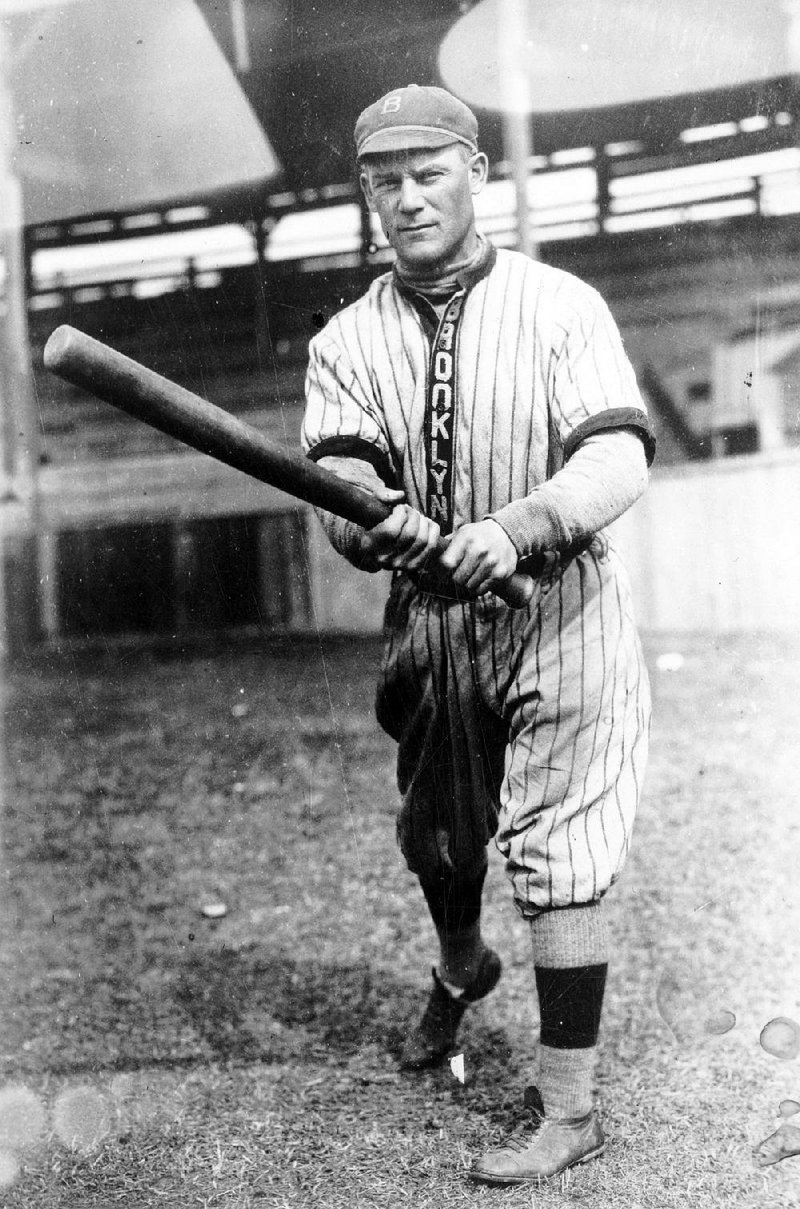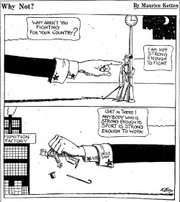World War I cut short the 1918 season of Little Rock's minor league baseball team, the Arkansas Travelers.
Their season ended while they were second in the Southern Association, only 7 1/2 games behind the New Orleans Pelicans and with a possible (but unlikely) path to the pennant. They'd led the league in runs and home runs. Two players' batting averages topped .300.
Some fans were sad and some teams resisted. But the directors of the league -- the Southern Association of Professional Baseball Clubs -- decided at Birmingham, Ala., that they were too patriotic not to suspend operations June 28. The Arkansas Democrat reported:
Lack of interest and the increased cost of transportation together with the government's Work or Fight order were given as the reasons for closing.
What was Work or Fight? The federal Selective Service Bureau and Provost Marshal General Enoch Crowder issued this rule in late May 1918, backed by Secretary of War Newton D. Baker. Any unemployed male not doing a job deemed essential to winning the Great War was subject to immediate military draft. Here's the news from the Arkansas Gazette on May 24:
General Crowder's new regulation is far reaching in scope and touches not only habitual idlers but also requires that draft registrants now in occupations held to be nonuseful seek new jobs or take their places in the army.
Clerks in stores, waiters, bartenders, employees at places of amusement, passenger elevator men and other employees around hotels, clubs and business buildings, as well as gamblers, fortune tellers and race track and bucket shop attendants all fall among those classed as nonusefully engaged.
The rule also threatened labor unions, which had staged a lot of strikes in 1917 and 1918. In some places Work or Fight was used to coerce black men to accept submarket wages. In Pine Bluff, planters and businessmen tried to have Work or Fight applied to black women, too, forcing them to work 50 hours a week or lose spousal allotments from the War Department while their husbands were at war. Look that up at recordsofrights.org or in the history of the NAACP, whose first chapter in Arkansas formed on July 4, 1918.
At first baseball, with its fields full of obviously able-bodied, combat-age men, got a pass. But public support was turning. Big leagues held out until July, trying to appease dwindling crowds with pre-game "drills" in which players shouldered bats and marched around, rank and file.
Minor league clubs read the writing on the page. So Travs secretary Ray Winder announced that the final games of the season would be a double header against the Nashville Volunteers on June 25, at Little Rock's Kavanaugh Field -- the site of today's Little Rock Central High School Quigley Stadium.
Club president R.G. Allen quickly sold off six of his best batters to the St. Louis Cardinals, leaving the Travelers with eight, one of them hurt. Team manager Kid Elberfeld was scouting the city for hopefuls to "patch" the team and would end up playing himself (not unprecedented, see below). But the Democrat found solace:
While the Travelers have lost several familiar faces since taking to the road several weeks ago, and incidentally, have lost the usual punch in the batting order, fans will have no doubt that the affair will be chalked up in their favor. For the Volunteers have been shot to pieces!
Yippee. Here's the June 26 report from the Gazette:
Fourteen innings of perfunctory baseball served in equal portions to a small crowd of those who have decided to stay with the game to the finish were converted into a win and a loss for both the Travelers and the Nashville Volunteers. Our gang copped the first game by way of making it a happy finish for the Southern League career of Thomas David Boman of Alabama, en route to Cincinnati, O. The score was 2 to 0, "Turkey" hanging the "0" on the Vols.
The other game was given up to the visitors without any noticeable struggle by a score of 4 to 1.
Norman "Kid" Elberfeld (1875-1944) was a "marvel," to quote the Gazette. He had turned the team around since taking the helm in 1917.
He was a tough character, a wily, treacherous, strategically hot-tempered and talented player and manager.
Before he took up managing minor league teams in the South, he spent 14 years playing shortstop for the Philadelphia Phillies, Cincinnati Reds, Detroit Tigers, New York Highlanders, Washington Senators, Brooklyn Dodgers and possibly other teams ... Dear Reader, I shouldn't admit it, but I'm very ignorant about this game; so here's a link to his stats: arkansasonline.com/625kid. Knock yourself out.
He batted over .300 four times and his career batting average was .271. He was no slouch at shortstop, either. In 1910, with Washington, he led the American League in fielding with a .943 percentage. I have some inkling what those numbers mean, but I'm most impressed about these: He had a son and five daughters, all athletes.
He'd picked up the nickname Kid early on, because at 5-foot-7 and 158 pounds he looked like a boy playing with the men. But it's even more fun to read about his other nickname, "The Tabasco Kid."
His temper was "volcanic," as the Gazette put in April 1916, when Elberfeld was still managing the Chattanooga Lookouts.
He was one of the original "goat getters." One of his favorite stunts was to run out of the batter's box and wallop the ball before the curve could break. He had many an argument with the umps and was banished from many a game before they broke him of this habit.
Being short made him hard to pitch to, and he specialized in getting hit. He could angle in toward the plate with his arms set where the ball would glance off him -- while he contorted as though avoiding it. Then he'd shout angrily at the pitcher. And then he'd walk.
As a player, he was ejected from games 22 times. During his only season as a major league manager, in 1908, he was ejected four times.
Here's a tidbit from a Canadian paper, the Winnipeg Tribune, which in 1933 announced he was in town to teach one of his famous youth ball clinics:
When he finally wound up in the Southern League, where he won a pennant managing the Little Rock Travelers in 1920, Elberfeld would send himself in as a pinch hitter when the bases were full and a run was needed to win. The Kid would intentionally fall into the pitch, no matter how fast it was, and get a free base and force in a runner with the winning tally. It got so the club owners passed a regulation preventing him from taking a base when hit by a pitched ball.
With the Southern Association on hiatus, by July 1918 he was a YMCA athletic director at Camp Shelby in Hattiesburg, Miss., teaching soldiers how to throw grenades.
After the war, he came right back to Little Rock and assembled the best team the club had ever seen, and, yes, won that pennant in 1920.
Having admitted my ignorance, I hope I'm going to hear from Helpful Reader. If you have stories to share about Kid Elberfeld, wrap an email around them and send those missiles straight over the plate to:
ActiveStyle on 06/25/2018


